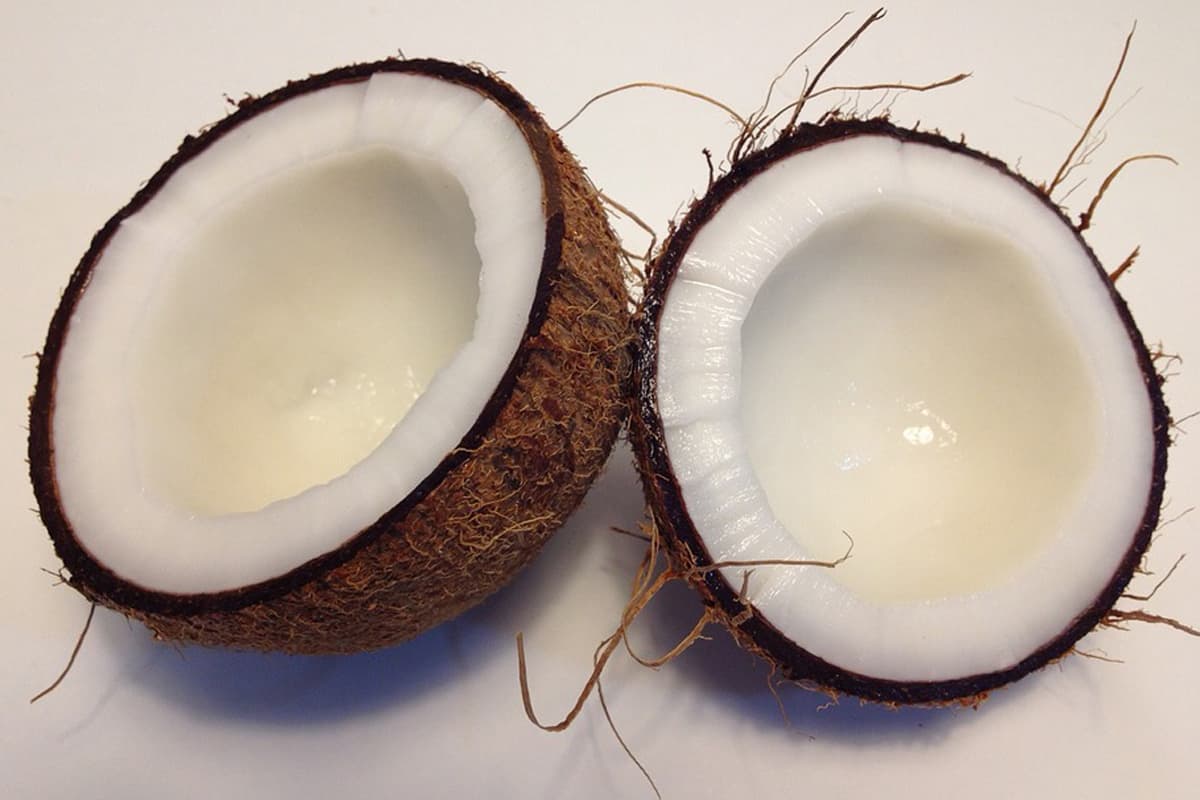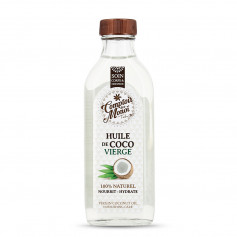Coconut oil, the big star of the moment, has been rediscovered by the cosmetics industry. Its virtues are so vast that it would be foolish to do without it! Here's everything you need to know about coconut oil.
What is coconut oil?
Coconut oil is produced wherever coconut palms grow. In other words, in Asia, Africa, Central America and the Pacific islands. Coconut palms are capable of producing between 50 and 150 coconuts a year, which is an abundance of production! On the other hand, coconuts take around a year to mature... Coconut cultivation is sustainable, unlike palm cultivation, which is controversial.
To obtain the coconut oil all you have to do is squeeze the flesh from fresh coconuts. The result is virgin coconut oil. Thanks to this unique process, it retains a fragrant aroma, ideal for cooking. When the flesh dries, it's perfectly possible to make oil from it, but this time it's no longer coconut oil, but coconut oil. Its treatment differs from that of coconut oil, since it is refined to eliminate various moulds. Less interesting nutritionally speaking, the food industry is still fond of it, as it remains less expensive than virgin coconut oil.
In other words, coconut oil comes directly from the fruit of the coconut palm. It undergoes no treatment after extraction, and remains pure. It is also available in deodorized form. This means it no longer contains any aromas or fragrances. To achieve this, it has to be hydrogenated, which alters its nutritional properties and benefits.
What are the benefits of coconut oil?
Coconut oil has many health benefits. It combines three very rare fatty acids: lauric acid, capric acid and caprylic acid. It is also recommended in cases of cardiovascular disease. Although very rich in saturated fatty acids, and contrary to popular belief, these do not stagnate in the arteries or heart. The body uses them without storing them, and will even use them to promote fat burning. It is also very easily absorbed by the liver, and remains a favorite as part of an anti-cholesterol diet.
In addition to flavouring dishes and pastries, coconut oil can be heated to very high temperatures without altering its properties. It is therefore an excellent substitute for olive oil, which is not recommended for frying, for example. Finally, coconut oil reduces hunger, probably due to the medium-chain fatty acids it contains.

Coconut oil is of great cosmetic interest. It has antimicrobial and antibacterial properties. It also contains 48% lauric acid, which is highly effective against herpes and vaginal mycosis. But that's not all: it's an ultra-moisturizing and soothing vegetable oil for both skin and hair. Coconut oil is also ideal for brushing teeth when you're advocating zero waste in the bathroom. Its antibacterial properties make it a perfect substitute for toothpaste. Some even claim it whitens teeth.
Coconut oil has a number of other virtues, including its ability to replace make-up remover, hand and nail cream and more. Unexpectedly, it's also perfect for fighting acne, thanks to its high lauric acid content. However, it's best used on acne of dry skin rather than oily skin. It also relieves eczema.
Why use coconut oil on the body?
Coconut oil is pure, vegetable and non-allergenic. It is therefore perfectly suited to all skin types, even the most atopic. From babies to the elderly, coconut oil is not contraindicated. It deeply moisturizes and lightly perfumes the skin.
Applied regularly after a shower, coconut oil restores vitality to the skin, while effectively nourishing it. Although not a sun oil, it filters out 20% of the sun's ultraviolet rays. Coconut oil can be an emergency solution if you run out of sun cream!
How to use coconut oil
Coconut oil can be used as is. There's no need to liquefy it before applying it to the body or hair. Simply take a small amount of oil with your fingertips or a wooden stick and rub it into your body or hair. On the face, it has an anti-aging action and restores radiance to dull skin.
Combined with brown sugar, it acts as a natural, gentle scrub. On the other hand, combined with lemon, mint essential oil, baking soda or activated charcoal, it replaces toothpaste every time you brush. Finally, mixed with bicarbonate alone, coconut oil will sanitize armpits and prevent perspiration odors.
Coconut oil can be applied to hair as a mask before shampooing, but can also be used as a conditioner for drier hair.


 en
en 







